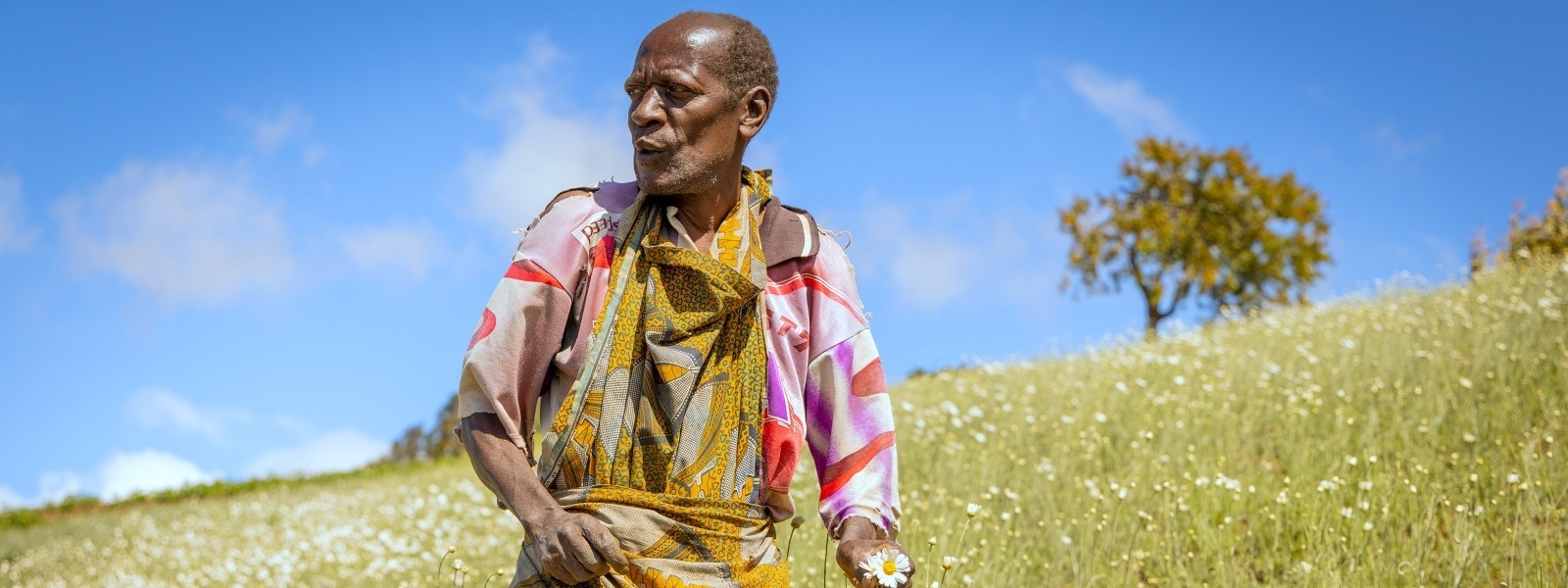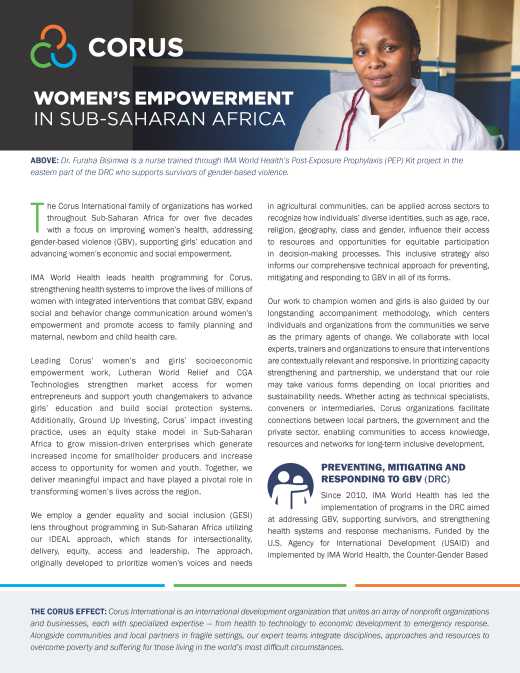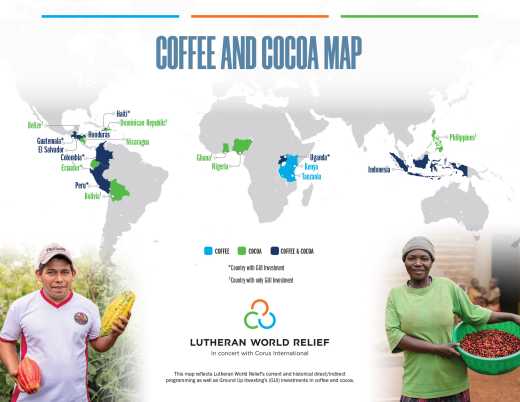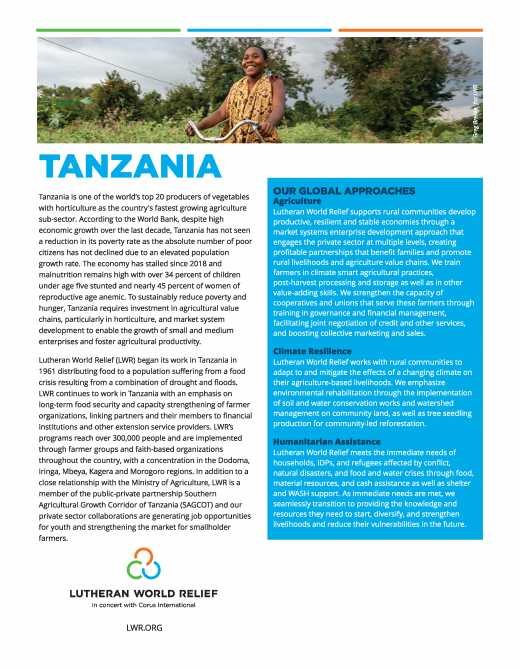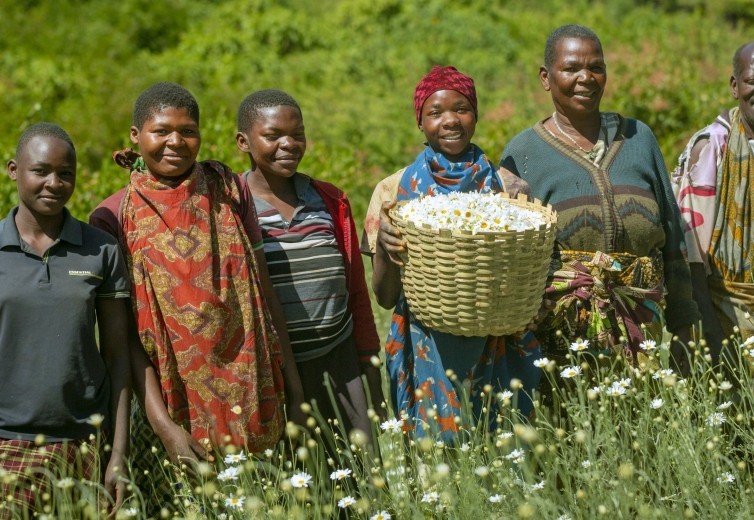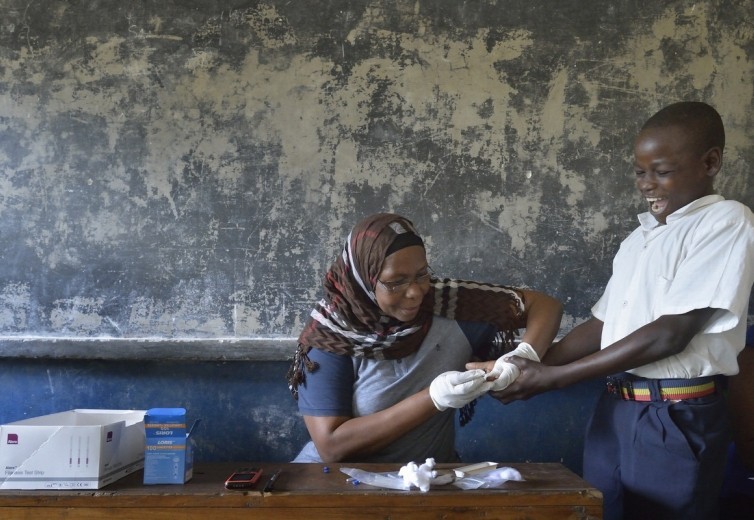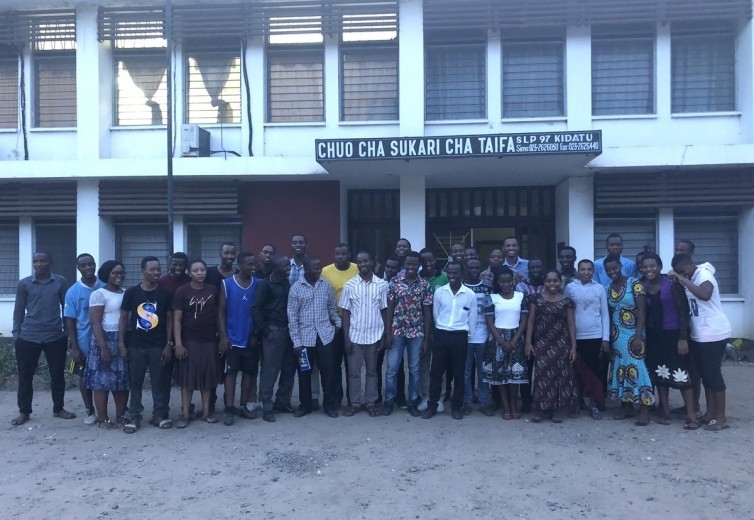Photo: Edward Peter Mwanzyesye is a pyrethrum farmer in Tanzania. LWR's Pareto ni Pesa project is strengthening the livelihoods of smallholder farmers by improving their market linkages throughout the pyrethrum value chain, pyrethrum production and post-harvest handling, and use of technology solutions.
Tanzania is one of the world’s top 20 producers of vegetables. Horticulture is Tanzania’s fastest growing agriculture sub-sector, expanding at a rate of 11 percent per annum compared to a 4 percent growth rate in the overall agricultural sector. According to the World Bank, despite high economic growth over the last decade, Tanzania has not seen a reduction in its poverty rate as the absolute number of poor citizens has not declined due to an elevated population growth rate. The economy has stalled since 2018 and malnutrition remains high with over 34 percent of children under age five stunted and nearly 45 percent of women of reproductive age anemic. To sustainably reduce poverty and hunger, Tanzania requires investment in agricultural value chains, particularly in horticulture, and market system development to enable the growth of small and medium enterprises and foster agricultural productivity.
Lutheran World Relief (LWR) began its work in Tanzania in 1961 distributing food to a population suffering from a food crisis resulting from a combination of drought and floods. LWR continues to work in Tanzania with an emphasis on long-term food security and capacity strengthening of farmer organizations, linking partners and their members to financial institutions and other extension service providers. LWR’s programs reach over 300,000 people and are implemented through farmer groups and faith-based organizations throughout the country, with a concentration in the Dodoma, Iringa, Mbeya, Kagera and Morogoro regions. In addition to a close relationship with the Ministry of Agriculture, LWR is a member of the public-private partnership Southern Agricultural Growth Corridor of Tanzania (SAGCOT) and our private sector collaborations are generating job opportunities for youth and strengthening the market for smallholder farmers.
Project Highlights
Livelihoods strengthening in the pyrethrum value chain: In Tanzania’s rural districts of Kilolo, Mufindi, Iringa, Mbeya Rural and Ileje, LWR's Pareto ni Pesa project is strengthening the livelihoods of smallholder farmers by improving their market linkages throughout the pyrethrum value chain, pyrethrum production and post-harvest handling, and use of technology solutions. Working with Pyrethrum Company of Tanzania Limited (PCT) to address the challenges farmers face, Pareto ni Pesa is an example of Lutheran World Relief's market systems approach that helps people out of poverty by addressing the underlying causes of market failure. LWR identifies and supports market players, such as buyers, private sector companies and exporters, that have the motivation and ability to influence market systems to favor marginalized smallholder farmers and rural communities. To date, the project has reached more than 7,000 farmers, many of whom are women and youth. The pilot project has achieved a 60% increase in yield for participating farmers and an increase from 1.2% to 1.8% in the content of pyrethrin in flowers, raising average revenue for participating farmers from $320 to $750 per acre.
Through LWR’s Investing in New Ventures of Entrepreneurial Students in Tanzania (INVEST) Project, we partnered with the Ministry of Agriculture’s technical agriculture institutes to strengthen course curriculums to include market-ready skills and training and to expose students to real-world careers in agriculture through paid internships. The revised curriculum, approved and signed by the Tanzanian Ministry of Agriculture, is now being implemented in 36 technical agricultural institutes, reaching over 25,000 students. LWR partnered with private companies and secured internships for more than 280 students. In recognition of the difficulty youth often have in gaining critical investment capital for their entrepreneurial ideas, INVEST also included an annual start-up challenge fund for students. LWR provided financial literacy and grants to support youth entrepreneurs, businesses and commercial entities to expand their business beyond school. In total, 312 students received start-up capital to launch a business and 60% of their enterprises are already profitable. LWR is working to create a broader view of agricultural careers through programming and investment in agriculture education for both on- and off-farm occupations.
LWR has strengthened the technical and organizational capacity of more than 30 farmer organizations so that they can provide sustainable, equitable and quality services to their members. In partnership, LWR develops action plans adapted to the specific capacity strengthening needs of each organization with plans often focused on transparency and governance, policies and procedures, and the provision of services such as agricultural extension, access to credit, discounted inputs and sales to a higher value market. Such services increase farmer crop productivity and income, demonstrating the value of collective action and increasing the willingness of farmers to pay for such services.
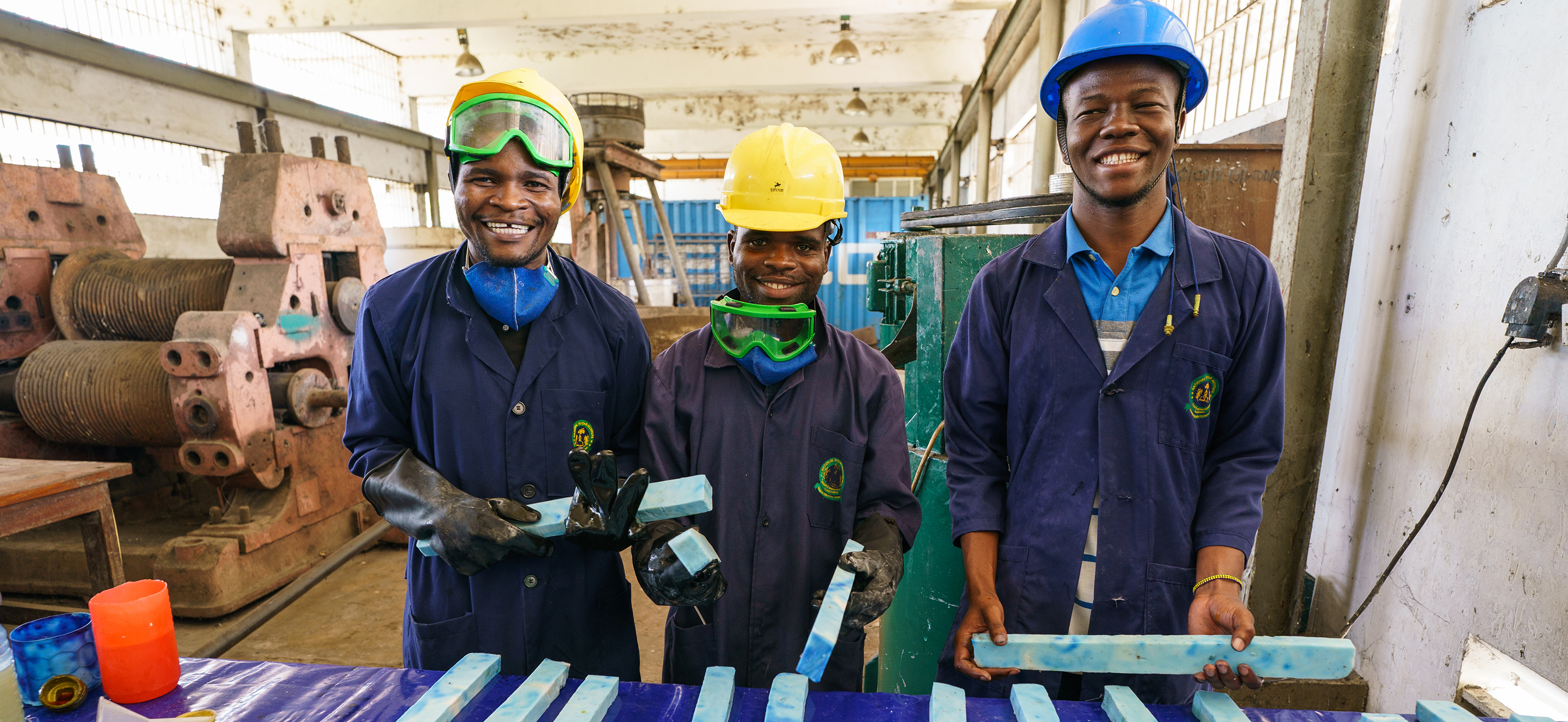
The Corus Effect
Lutheran World Relief is part of Corus International, an ensemble of global leaders in international development and humanitarian assistance. In addition to Lutheran World Relief, the Corus family of organizations includes global public health agency IMA World Health, U.K.-based technology for development company CGA Technologies, impact investing group Ground Up Investing, and direct trade company Farmers Market Brands.
We operate as permanent partners, integrating expertise, disciplines, approaches and resources to overcome global health challenges, develop productive and stable economies, improve resilience in the face of climate change, and respond to natural disasters and humanitarian crises.
With the support of our family's diverse set of partners and funding – from multi- and bilateral institutions and foundations to the private sector and individuals – we invest in solutions that are innovative, scalable, holistic and move the needle towards transformational change.
